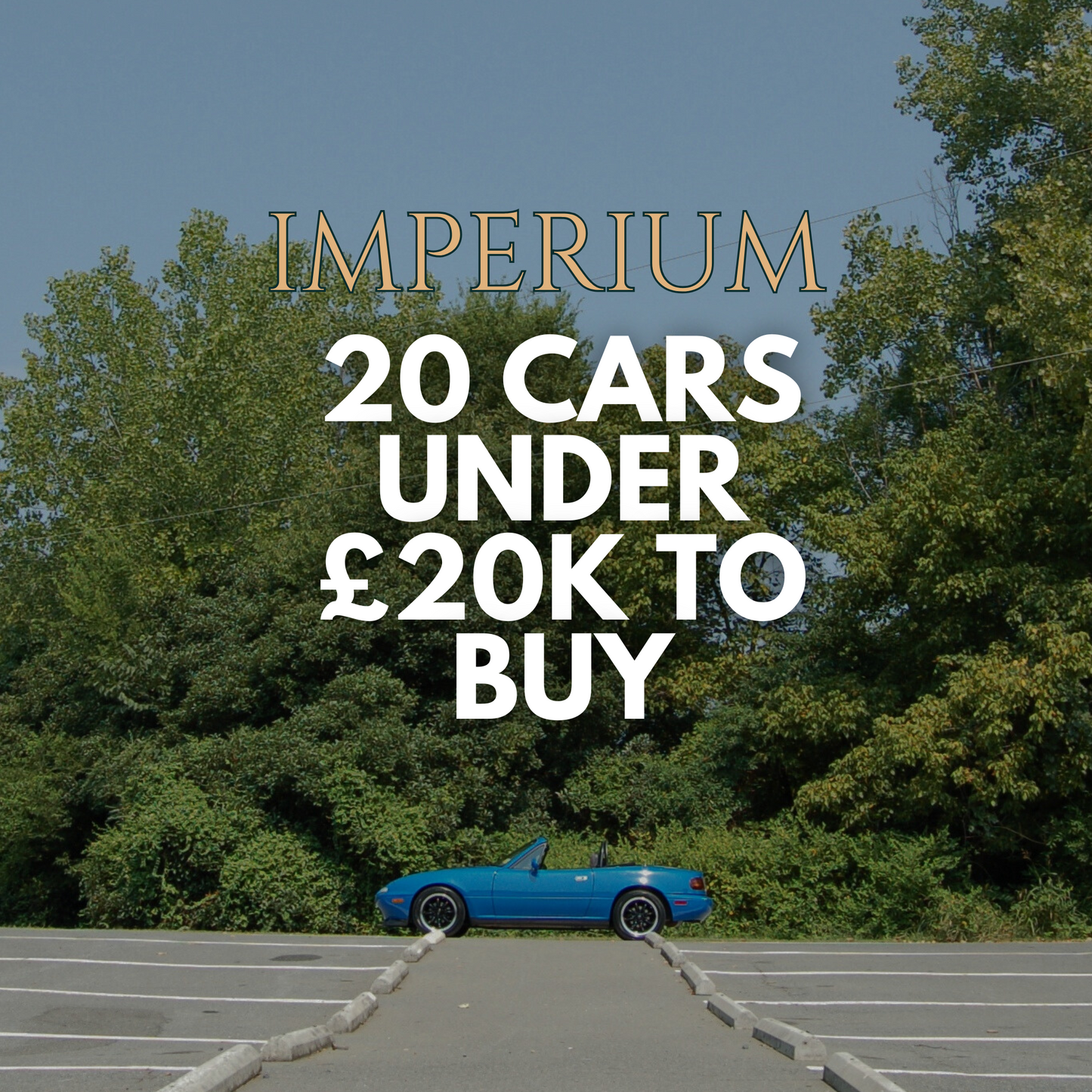
Drain your fuel tank not your wallet.
We believe you should be able to own your dream cars but not go bankrupt whilst doing so, we help make that a reality.
Our Mission
I'm David the founder of Imperium, this idea was born from 13 years of vehicular passion buying and selling more than 100 cars. Over that time I'd always thought to myself there has to be a more intelligent way to buy what I love without my wallet being drained. So with the help of AI and more than a decade of experience I decide to let the data do the talking to help me predict what vehicles are likely to become appreciating assets. I'm not just talking about garage queens worth more than the average house, I want to help people find fantastic cars at a wide variety of price points that can be used and enjoyed without financially crippling you from long term depreciation.
Imperium
20 Cars under £20k to buy - The investment guide
Share

Historic Price Index of Collectible Cars (2015–2024)
What makes cars an incredible asset class
Automotive Investment Benefits
Diversifiation
Collectible cars are a great way to diversify an investment portfolio because they combine tangible asset security with long-term appreciation potential, and they behave differently from traditional financial markets. Classic and exotic car values generally don’t move in sync with equities, bonds, or real estate. This makes them a smart hedge against market volatility and inflation.
Tax benefits
In the UK, collectible cars—especially classic models—can offer notable tax advantages that make them appealing to investors. One of the most significant benefits is the potential exemption from Capital Gains Tax (CGT). Classic cars are often classified by HMRC as “wasting assets,” defined as tangible moveable property with a predictable useful life of 50 years or less. Because of this classification, the sale of a classic car by a private individual is typically not subject to CGT, meaning any profit made on appreciation over time is tax-free.
Historical significance
When a car has a notable place in automotive or cultural history, its value can appreciate far beyond similar models. This historical appeal creates scarcity and prestige — two essential factors for investment-grade collectibles. The more unique the backstory, the greater the demand among serious collectors and museums.
Rarity
Rarity is a fundamental driver of value in collectible car investing, as limited supply naturally creates exclusivity and desirability among enthusiasts and collectors. Cars produced in small numbers—whether due to limited production runs, bespoke specifications, homologation requirements, or surviving examples—tend to hold or increase in value more reliably than mass-produced models. This is especially true when rarity is combined with brand prestige, performance pedigree, or historical significance
Passion
Passion plays a unique and powerful role in investing in collectible cars, setting this asset class apart from traditional investments. Unlike stocks or bonds, collectible cars are not just financial instruments — they’re objects of beauty, engineering, and nostalgia that ignite deep emotional connections. Many investors enter the market driven by a love for cars, motorsport, or a specific era or brand that holds personal meaning. This passion fuels long-term commitment, careful stewardship, and often leads to meticulous restoration and preservation — all of which can enhance the car’s value over time. The joy of owning, driving, and showcasing a prized vehicle at shows, rallies, or concours events offers intrinsic rewards that no paper asset can match. Moreover, this emotional connection strengthens the resilience of the market itself, as passionate collectors are less likely to panic sell during economic downturns. In many ways, passion transforms collectible car investing from a purely financial activity into a lifestyle — one that blends cultural appreciation, community, and financial reward.
Liquidity
Investment-grade cars offer relatively high liquidity compared to assets like property. While selling real estate can take months—or even years—due to legal, financial, and logistical complexities, collectible cars can often be sold much faster. In many cases, a desirable vehicle can be liquidated within a matter of days through private sales, specialist dealers, or auction houses, making it a more agile option for investors who may need quicker access to cash.
Testimonials
-
"I stumbled across Imperium Automobil while searching for unique investment opportunities, and I’m so glad I did. The team helped me source a rare Porsche 911 Turbo S that’s not only stunning to drive but has appreciated in value since I bought it. Their insight into the market is unmatched — I’ve never felt more confident parking money into a car."
-
"I always dreamed of owning a Ferrari, but I never thought of it as an actual investment until I spoke with Imperium. They walked me through the process, handled all the sourcing, and found me a low-mileage 458 that’s already gaining interest from collectors. It’s more than a car — it’s a smart asset. The professionalism and personal attention were outstanding."
-
"Before finding Imperium, I was clueless about the automotive investment world. Their website laid everything out clearly — from how appreciation works to market trends. After a consultation, they helped me acquire a AMG GTR that ticks every box. Now I get compliments at every event and I know I've parked my money somewhere smart"
